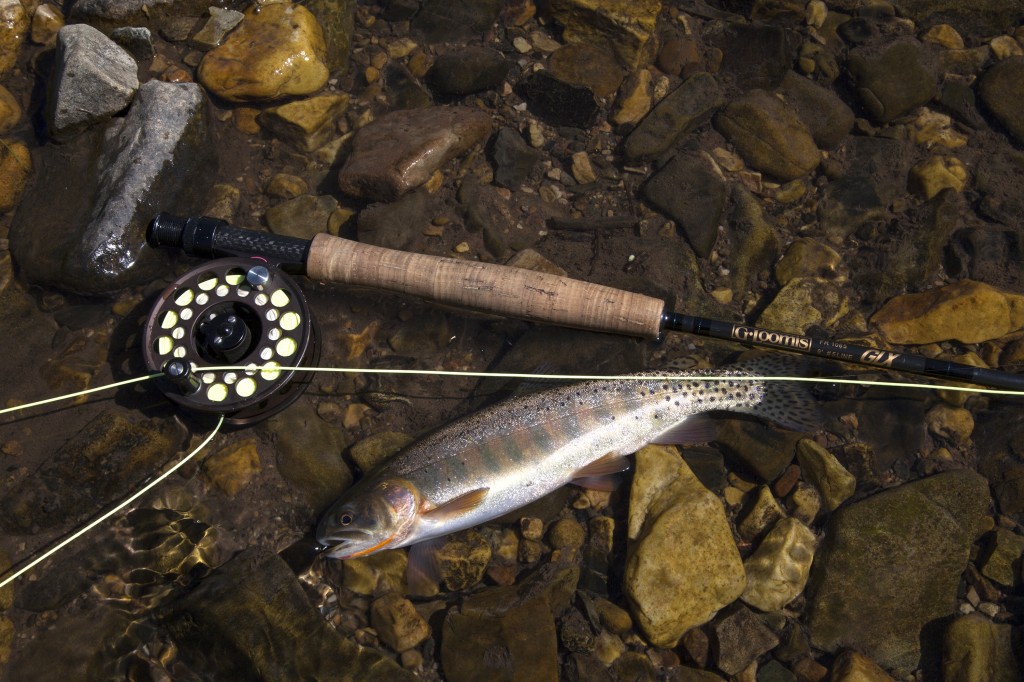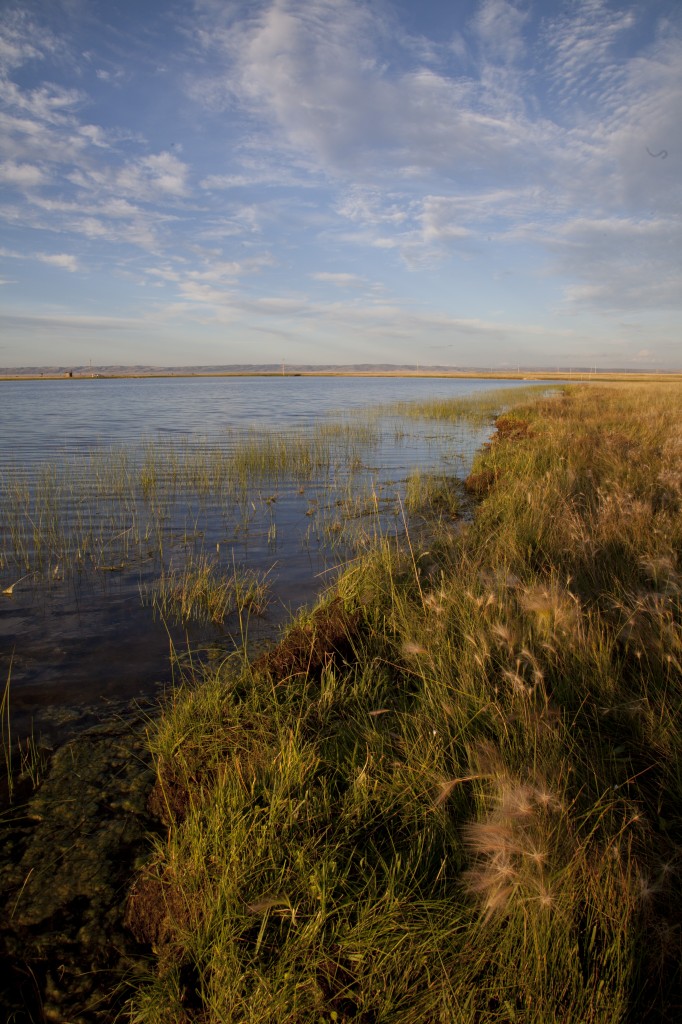THE GOOD OLD DAYS. I’M OLD ENOUGH TO REMEMBER THE SIXTIES (AND EVEN A PIECE OF THE FIFTIES) WITH SOME FONDNESS, BUT THERE ARE A LOT OF THINGS ABOUT THAT ERA I’d just as soon forget, especially in the environmental arena— massive fish kills, rivers catching fire, and not least, a federally funded campaign to destroy wetlands. Between the 1950s and the 1970s, nine million acres of wetlands in the contiguous forty-eight states were drained, filled, plowed, destroyed— an average of 458,000 acres a year. 
Efforts to respond to this casual abuse culminated in 1972 with the Clean Water Act. The first paragraph of the act set out a clearcut objective: “to restore and maintain the chemical, physical, and biological integrity of the Nation’s waters.” Among other goals, the authors wanted to achieve “water quality which provides for the protection and propagation of fish, shellfish, and wildlife and provides for recreation in and on the water.”
Authority for enforcing the provisions of the act was split between the Army Corps of Engineers and the nascent Environmental Protection Agency, and over the next thirty years, treatment of domestic sewage improved markedly, even as the nation’s population increased, and pollution from point sources like industrial plants decreased, even as the economy grew. Overall, the Clean Water Act has significantly improved water quality in many urban areas, while rural areas have seen less improvement, mainly because of heavy use of fertilizers and pesticides.
Another benefit of the act was undeniable: By 2000, headwater streams had been afforded some measure of protection against toxic run-off from mines and silt from overzealous timbering and road-building and the drainage of freshwater wetlands had been almost halted. Part of that shift was the result of ongoing efforts of the U.S. Fish and Wildlife Service and private-sector conservation groups like Ducks Unlimited, but much of it rose from the protection the Clean Water Act offered against unregulated drainage, filling, or pollution. Wetlands are the most productive, diverse natural systems on the continent. They’re a mainstay for North America’s waterfowl, but they support hundreds of other species of birds, mammals, reptiles, amphibians, and invertebrates as well. And headwater streams, especially in the mountainous West, are crucial nurseries for trout and salmon as well as refuges for a variety of rare fish species.
Which explains why hunters, anglers, and other conservationists were so distressed when, in 2001, the U.S. Supreme Court gutted the Clean Water Act’s authority to protect “isolated” wetlands. Five of the justices challenged the scientific understanding that nearly all water is connected, either directly when water runs from one drainage into another or indirectly through the movement of groundwater or migratory birds that travel from one wetland to another. Their majority ruling immediately exposed wetlands like the prairie potholes in the northcentral United States to the dredging and filling operations that had previously been regulated by Section 404 of the Clean Water Act and called into question the act’s protection of headwater streams far from the continent’s major river systems.
Ever since the Supreme Court decisions in SWANCC v. Corps of Engineers and Rapanos v. United States, the Corps of Engineers and the EPA have been struggling to redefine a key concept in the Clean Water Act: the phrase “waters of the United States.” After a decade of discussion and public input, the two agencies proposed a new definition last April.
Complicated? I guess. The proposed rulemaking filled eighty-six pages in the Federal Register. In recognition of the limits placed on their authority by the court, the two agencies reiterated and clarified many of the exemptions they had granted in their earlier permitting and enforcement. Farmers were granted all the exemptions they had enjoyed before the Supreme Court decisions, including exemptions for irrigation that continue to cause serious water quality problems. Water-filled depressions created during construction were given a pass along with gullies, artificial ponds created on dry land as ornaments or for stock watering, irrigation, or rice culture. Groundwater was exempted; the state authority over water rights was recognized. 
And the concept of an “isolated” wetland is clarified. In order to be protected under the Clean Water Act, a wetland would have to “significantly affect the chemical, physical, or biological integrity” of a larger body of water, considered to be a “water of the United States.” In the case of a system of isolated wetlands like the prairie potholes, the entire system would have to “significantly affect” one of those major waters.
The proposed rule is a huge compromise for conservationists, but it provides more protection for headwater streams and isolated wetlands than the current situation in which the corps or EPA has to decide case by case whether a creek or marsh is covered by the Clean Water Act. It’s better than nothing.
The new proposal has its opponents, of course. There are many economic interests that would just as soon be free to degrade or destroy watercourses and wetlands. They would be more than happy to return to an arrangement that left the public with poisoned water, dead fish, and burning rivers. And, inevitably, these interests have friends in Congress.
On September 9, the U.S. House of Representatives passed a bill called the “Waters of the United States Regulatory Overreach Protection Act of 2014,” 262 votes in favor to 152 opposed. If enacted, the bill would block the proposed rule and order the corps and EPA to reach consensus with all fifty states before proceeding. Bear in mind that the state-by-state approach to water quality before 1972 is what left us with fires on the Cuyahoga River, millions of dead fish on the Mississippi, and poisoned salmon runs on the West Coast.
The bill has little chance of passing the Senate and no chance of being signed into law. Still, the action by the House is appalling. The majority seems more than willing to sacrifice clean water and wildlife in order to please their corporate contributors.
Perhaps the most distressing part of this is the lip service these Congressmen pay to “the sportsman.” Of the 262 who voted and/or cosponsored this bill, 198 are members of the Congressional Sportsmen’s Caucus. That’s the group that claims “to protect and advance the interests of sportsmen and women through policies that address sportsmen’s conservation issues such as hunting, recreational angling and shooting and trapping.”
I’m an avid waterfowler, so the future of the prairie potholes concerns me. I’m an avid pheasant hunter, so the winter cover those potholes provide is a matter of some interest to me as well. I like to fish for trout in the high country, which means I’m a supporter of good water quality in the West. One of these days, I hope to get over toward the coast and wet a fly for steelhead, so I like to think those rivers will be clear and full of fish when I get there. In short, I’m a sportsman, so I care about clean water. Nor do I think I’m alone in this concern— tens of millions of other hunters and anglers recognize that we can’t have wildlife without water. It’s an ecological fact that even the members of the Congressional Sportsmen’s Caucus ought to be able to understand.
We’ve tried cleaning up our streams and protecting our wetlands state by state— it doesn’t work. The quality of our water affects us all; it’s a national issue and it requires a national solution.
If you happen to live in Connecticut, Delaware, Hawaii, Maine, or Vermont, your representative didn’t vote for the “Waters of the United States Regulatory Overreach Act.” If you live anywhere else, there’s a chance he or she did. If you live in Texas, Georgia, Louisiana, Michigan, North Carolina, Oklahoma, the chances are pretty good, and if you live in Utah, Wyoming, North or South Dakota, it’s a certainty.
The next time that glad-handing politician slaps you on the back and tells you what a dyed-in-the-wool nimrod he is, how many mallards he shot last year, how many bass he caught, ask him how he voted on this one.
It takes more than a gun or a fishing pole to make a sportsman.
Leave a Reply
You must be logged in to post a comment.